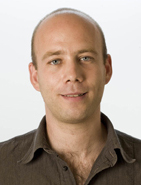In depth
Negotiating the Arms Trade Treaty

Xavier Alcalde
At the International Conference in July 2012, states will be the key players who must negotiate the Arms Trade Treaty. Nevertheless, at the International Catalan Institute for Peace (ICIP), we wanted to focus on the activists, because, as stated by García Moritán in the main interview in this issue, 'without civil society, there will be no treaty'. Indeed, pressure from NGOs is a prerequisite for the success of such a process. That is why here we are proposing a sample of activists who are behind the campaign: who they are, how they work, why they got involved and, in short, what they intend to achieve.
The negotiations in July represent the end of a long journey that began in 2003 with the founding of the Control Arms campaign with the aim of developing an international treaty to prevent irresponsible arms trade. From the start, it has been an alliance of various organisations that combined brought together millions of members worldwide. First of all, Amnesty International (AI), interested in showing the association between armed violence and human rights violations. As we shall see, Yasmin Espinoza also represents a key region in this process: Latin America.
Second is Oxfam, revealing the consequences of arms trade for the socioeconomic development of communities. You will meet Oistein Thorsen, a European living in New York and member of a transnational elite leading this type of initiative for disarmament in recent years, and Midori Natzuki, from Japan, a country that is key to promoting human security issues on the international agenda.
The strength of these two organisations within the campaign demonstrates that the bulk of the activists is not formed in this case by members of the traditional peace movement, but includes a cross-cutting, heterogeneous group of committed individuals with varying interests who share a common goal: the need to put an end to uncontrolled arms trading through global negotiations that affect and will affect the lives of people around the world.
Together with AI and Oxfam, Control Arms is also comprised of hundreds of small organisations grouped together in an international network against the proliferation of small arms, IANSA. For an explanation of what this network is and what it does, we spoke to Joseph Dube, regional coordinator for Africa, a special continent with many of the countries most affected by armed violence and therefore a continent that greatly suffers from irresponsible arms trade.
Along these lines, a particularly important and necessary group of individuals is the group of victims and survivors. The pressure to publish when closing this issue forced us to forgo the testimony of a great woman, Suela Lala, Albanian, who will also take part in the meetings. We will introduce you to her in the next issue of Peace in Progress. As always, the issue is completed with the section Finding out more, a guide to stay informed about the issues concerning the ATT.